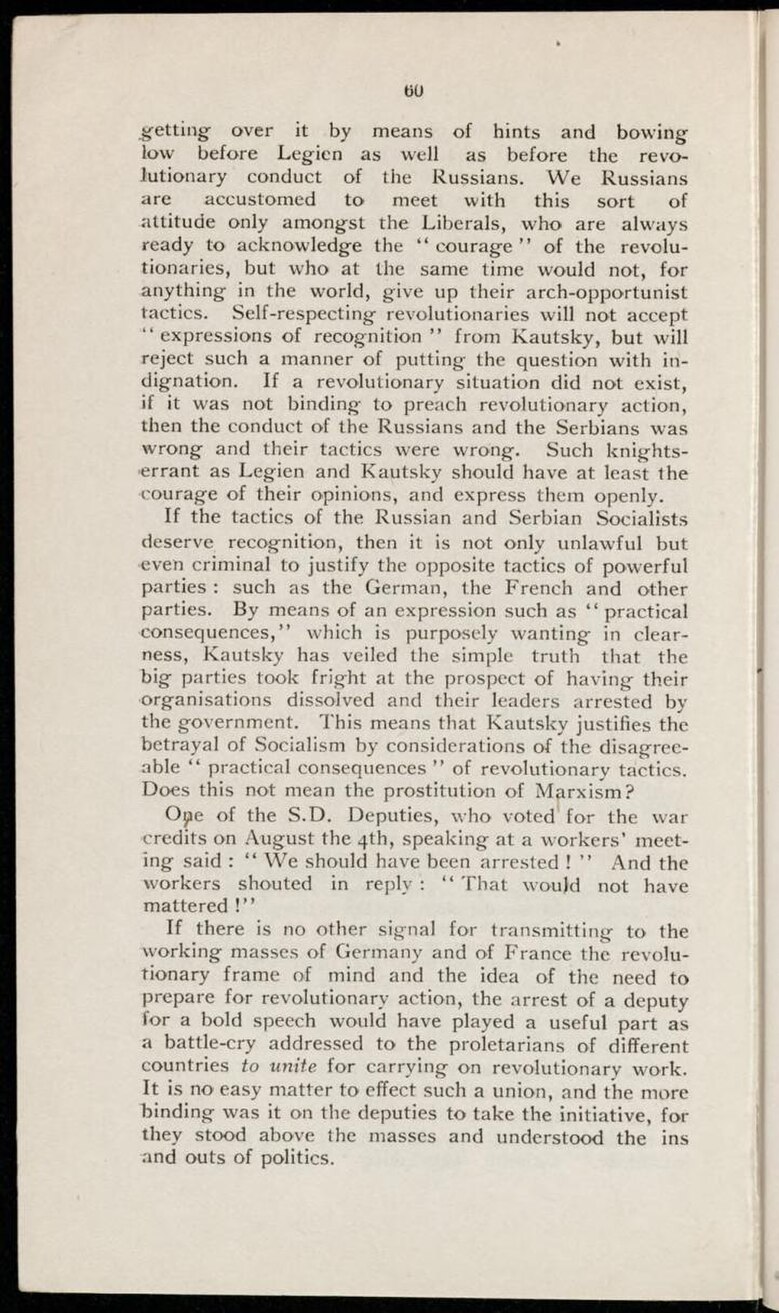60
getting over it by means of hints and bowing low before Legien as well as before the revolutionary conduct of the Russians. We Russians are accustomed to meet with this sort of attitude only amongst the Liberals, who are always ready to acknowledge the "courage " of the revolutionaries, but who at the same time would not, for anything in the world, give up their arch-opportunist tactics. Self-respecting revolutionaries will not accept "expressions of recognition " from Kautsky, but will reject such a manner of putting the question with indignation. If a revolutionary situation did not exist, if it was not binding to preach revolutionary action, then the conduct of the Russians and the Serbians was wrong and their tactics were wrong. Such knights-errant as Legien and Kautsky should have at least the courage of their opinions, and express them openly.
If the tactics of the Russian and Serbian Socialists deserve recognition, then it is not only unlawful but even criminal to justify the opposite tactics of powerful parties: such as the German, the French and other parties. By means of an expression such as "practical consequences," which is purposely wanting in clearness, Kautsky has veiled the simple truth that the big parties took fright at the prospect of having their organisations dissolved and their leaders arrested by the government. This means that Kautsky justifies the betrayal of Socialism by considerations of the disagreeable "practical consequences" of revolutionary tactics. Does this not mean the prostitution of Marxism?
One of the S.D. Deputies, who voted for the war credits on August the 4th, speaking at a workers' meeting said: "We should have been arrested!" And the workers shouted in reply: "That would not have mattered!"
If there is no other signal for transmitting to the working masses of Germany and of France the revolutionary frame of mind and the idea of the need to prepare for revolutionary action, the arrest of a deputy for a bold speech would have played a useful part as a battle-cry addressed to the proletarians of different countries to unite for carrying on revolutionary work. It is no easy matter to effect such a union, and the more binding was it on the deputies to take the initiative, for they stood above the masses and understood the ins and outs of politics.
